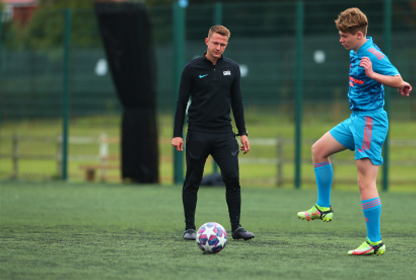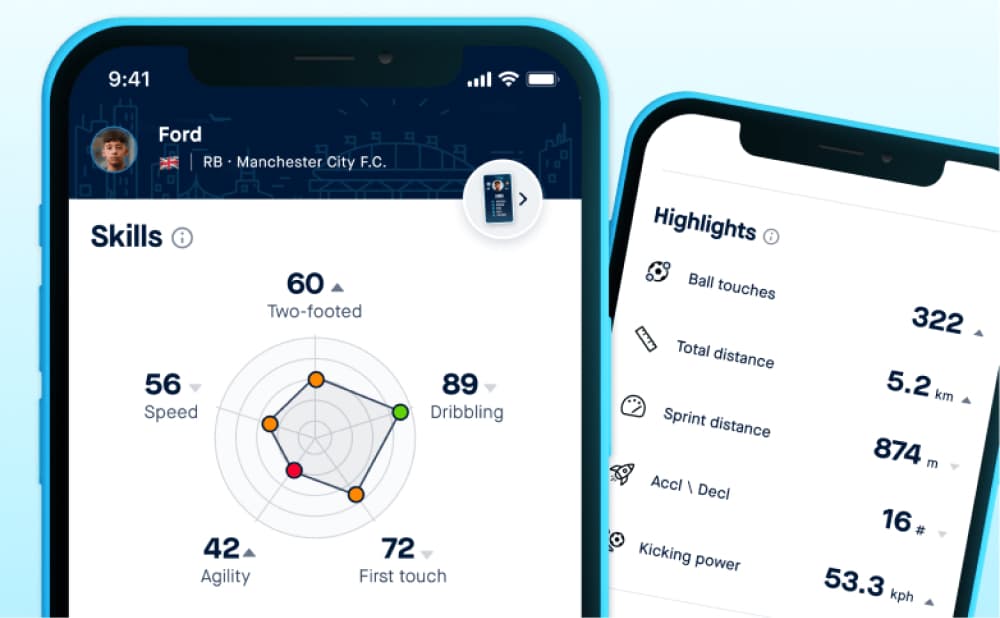Being a football coach comes with a certain level of prestige that few get to enjoy. Only passionate and dedicated people make it in this field. As a coach, you get the fantastic opportunity to watch your players grow from one level to another. Now, isn’t that a wonderful contribution?
As a professional coach, your goal is not only to help your team reach their full potential but to also encourage healthy development. Whether you are coaching a secondary school team or a team from the Premier League, you need to give your all to see meaningful progress in your team.
The success of your career reflects in the performance of your team. Now, do you want to become a professional coach? Keep reading to learn more about how to become a football coach.
What Does a Football Coach Do?
A professional coach is a teacher, leader, counsellor, and partner. When you decide to become a professional football coach, your responsibility goes beyond training and taking your team through practice sessions.
You need to analyse your players’ performance and provide input on where to strengthen and where to make improvements. Fundamentally, you become the pillar that your team relies on for genuine, honest, and impactful insight.
Beyond that, football coaches also fulfil duties like:
- Performing first aid and CPR when required
- Conveying the rules and regulations of the sport to their players
- Motivating and guiding their player during games
- Managing team records
- Creating gameplay strategies
- Scheduling team meetings and practices
- Analysing the performance of the football player and providing feedback
- Applying for sponsorships for your team
- Working alongside other members of the club like physiotherapists and nutritionists to ensure that your team members are in the best condition physically and mentally
- Resolving conflict between team members
What Qualifications Do You Need to Coach Football?
Although the qualifications will differ depending on your teaching level, you might need a degree to coach football. You can enrol in sport-related courses like coaching dynamics, sports sociology, athletic injuries, sports medicine, or health science and nutrition.
Other qualifications you need include:
- First aid and CPR certification
- You must be over 18 years old
- Experience working with football players
What Makes a Good Football Coach?
As a coach, you become a lighthouse to your players. You offer the guidance they need to achieve greatness. Remember, it takes a lot of passion, patience, and experience to deal with players.
To become exceptional at your job, you will need some skills. Some of the vital skills you need when coaching professional football include:
- Teaching skills
- Management skills
- Time-management and planning
- Mental strength
- Analytical and organisational abilities
- Ability to inspire
- Commitment and dedication
- Excellent communication skills
- Ability to build relationships
- Physical fitness
- Enthusiasm and passion
Now, how do you become a football coach?
How to Become a Football Coach
A professional coach teaches a team of players to grow in skills and agility. You can start small, but you have the potential to grow in the industry. Although the qualifications differ depending on the football coaching level, you will go through some basic steps before you can coach football.
7 of these steps include:
- Play football– Having a background in the game gives you a better understanding of football as a whole, which then enhances the connection you develop with your players
- Get a bachelor’s degree– you can get a bachelor’s degree in exercise or sports medicine, physical education, and a teaching certificate.
- Get the relevant certificates and mandatory licence depending on your league- to coach in the UEFA league you need an FA Level 5 (UEFA Pro).
- Obtain first aid and CPR certifications– you will need to dispense first aid services in the field in case of injuries
- Develop your skills– Skills improve by learning and practising. Attend coaching clinics and learn the different techniques you can use to teach football.
- Gain the right experience– if you are new to the field, you can start by working as an assistant coach or volunteer as one. Local recreational teams are an excellent place to start.
- Work with more than one organisation– If your club allows it, working with more than one club gives you a broader perspective of the sport and teaches you how to handle different situations.
How Do You Develop Your Football Coach Career?
There are many opportunities in sports. You can progress quickly and become a sought-after coach in the world. To develop your career, you need to gain as much experience as possible.
Remember, your performance as a professional coach reflects in your team’s performance. Therefore, the better your team performs, the higher your coaching career will grow.
As you prepare to coach professional football, consider 2 things:
1) What level do you want to coach?
Visualising your goal makes it simpler to follow. So, as you prepare to become a renowned coach, have a clear vision of the level you want to coach. As you strive to get there, make sure that your coaching licence matches your progress.
2) Apply for advanced positions
Developing your career as a professional coach means coaching bigger teams and participating in bigger tournaments. That means, as your coaching career is growing, always look ahead and apply for higher-level jobs.
Career Opportunities for Football Coaches
Football is a global phenomenon. Almost every country has a national football club, and in the UK, there are football teams in nearly all schools. There are also over 50 international leagues. The top ones include La Liga, Premier League, Series A, Bundesliga and Ligue 1. In short, the opportunities in the world of football are unlimited, and you can take your team to any level you want.
How much do football coaches earn?
The average football coach salary in the United Kingdom is £29,250 per year or £15 per hour. Entry level positions start at £24,375 per year while most experienced workers make up to £43,875 per year.
How do you become a kid’s football coach in the UK?
Before you can take a paid coaching position on a kid’s football team you need your UEFA C licence. This is a sixty hour course that involves an assessment on one coaching session and the completion of a portfolio.
How do you coach a school football team?
You need an FA Level 3 or a UEFA B Licence which teaches age and ability-specific coaching techniques. These can be used to coach players through to senior amateur level, such as a school football team. This course helps coaches to design practices to improve technique, tactics and physical abilities. You must be actively coaching a competitive team to take this course.
Do you have to be good at football to coach it?
Being a good football player can help, but it’s not mandatory to be good at football to coach it. A good understanding of the game and excellent teaching skills can make you a great football coach. These are skills you can acquire by taking a coaching course and through experience. Besides, some of the best coaches in the field were not top tier players.
Bottom line
As you prepare to become a coach, you should understand that teaching a team of players takes more than a few training sessions and physical fitness. You need to be ready to take up the challenge and motivate your players to excel.
Getting started may be simple, but you need passion, enthusiasm, and strength to coach. However, you do not have to do it alone. With modern technology like Playermakers football tracking device, you can get first-hand information on your team’s performance for analysis.








